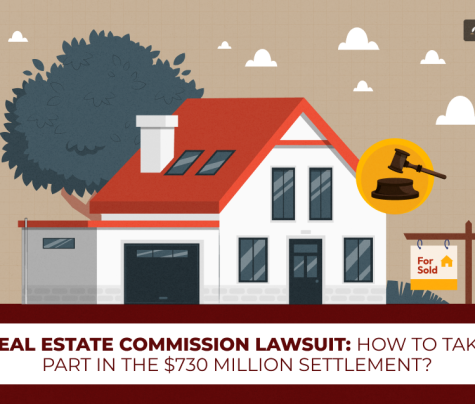
Separation is a melancholic factor to us. In this modern world, separation is not a rare case anymore. With a busy environment, the frustration level among people is increasing. In such a critical condition, no one wants to compromise.
However, everything starts with the mental condition of people. If you are happy inside, you can keep others happy as well. But when you feel low and exhausted, taking the pressure off a relationship is not convincing.
As a result, we end up breaking a relationship. This is where divorce becomes a prominent choice for many modern people. Whether someone is married or in a de facto relationship, understanding property settlement is a suitable and configured solution.
Yes! It is unthinkable for people who are happy couples. But when it comes to devastating relationships, divorce is the only solution, which also comes with financial concerns for the people.
Even if you are independent, your investments and emotions are two different stages. Do not try to dilute things to get a complicated future. Instead, you can go for a proper property settlement solution that comes with equality features.
Additionally, not all relations end up mutually, and negotiation for property settlement comes along the way. This is where you need prior knowledge and understanding of the subject and situations.
Property Settlement Tips For An Easy Transition

Going through a divorce in Australia can be a challenging and emotional process. In the meantime, dividing property and assets is an extra burden to any couple. This is where you need expert advice to get prominent solutions.
However, with the right approach and mindset, it is possible to achieve an amicable property settlement that benefits both parties.
Here, we will share some useful tips for achieving a smooth property settlement during a divorce. Thanks to property settlement experts like Rachel Storey, the transition was smoother than expected.
Write A Chronology
When it comes to property settlement during a divorce, it is essential to have a clear understanding of the financial assets involved. While you may have a general idea of the state of your joint financial assets, it is still helpful to make a comprehensive list of all assets and debts that were brought into the relationship by each of you, including joint assets that were acquired over time.
To make the process easier, try to use a spreadsheet and set out who contributed what and when. This will help you to identify the assets that need to be divided and the contributions made by each party. By having this information organized, it will be easier to negotiate a fair and amicable property settlement that benefits both parties.
Remember, it’s important to be transparent and honest when listing all assets and debts. Hiding any assets or debts can lead to legal complications and can ultimately harm both parties financially. So, take the time to create a detailed list of all financial assets and debts and work together to achieve a fair property settlement.
Understand Your Needs
When it comes to property settlement during a divorce, it’s crucial to be well-informed about your financial situation. Don’t go for a settlement without doing your prior homework. It’s essential to acknowledge your future needs and understand your financial situation before making any decisions.
Take the time to evaluate your current financial situation and make a budget for your future needs. Consider your ongoing expenses, future goals, and any debts you may have. This will help you to determine what assets you need to keep and what assets you can let go of.
It’s also important to remember that the decisions you make during property settlement will have long-term consequences. So, focus on your long-term goals rather than short-term gains.
Another important aspect of property settlement is determining the contributions made by each party. Make sure you understand each other’s contributions to the relationship, including financial and non-financial contributions. This will help you to negotiate a fair and amicable property settlement.
Focus On Long-Term

When it comes to property settlement during a divorce, it’s crucial to focus on the future and what’s important to you in the long term. While it may be tempting to prioritize short-term gains, it’s important to consider the long-term consequences of your decisions.
When attempting to reach an amicable property settlement, it’s essential to keep in mind the ultimate balance of property settlement. You can compromise on smaller things for the foreseeable future while ensuring that the final property settlement is fair and benefits both parties.
By focusing on the future and being willing to compromise, you can achieve a property settlement that allows you to move on from your divorce and start a new chapter in your life. Remember, property settlement is just one aspect of the divorce process, but it can have long-term consequences, so take the time to make informed decisions that benefit both you and your ex-partner.
Property settlement in divorce with Rachel Storey can help you determine your future needs.
Determine The Contributions
When it comes to property settlement during a divorce, determining each party’s financial contributions is crucial. Financial contributions signify the investments made by each party during the relationship, and they help determine the property management after the divorce.
It’s essential to have a clear understanding of each other’s financial contributions, including joint assets acquired during the relationship. This will help to identify the assets that need to be divided and the contributions made by each party. By having this information organized, it will be easier to negotiate a fair and amicable property settlement that benefits both parties.
Moreover, understanding each other’s financial contributions will also help you to control property management after the divorce. It’s important to decide who will keep the assets and liabilities and how the property management will be handled.
By focusing on the financial contributions made by each party during the relationship, you can achieve a fair and amicable property settlement that benefits both parties. So, take the time to evaluate each other’s financial contributions and work together to reach a mutually beneficial property settlement.
Be Civil And Respectful
No matter what comes your way, try to be civil and respectful throughout the settlement process.
- Try not to allocate blame
- Don’t involve children
- Don’t underestimate communication
If you can avoid these habits, it will help you find property settlement to be a far easier process. It will ultimately help you to complete the negotiations better!
Read Also:
- 6 Importance Of Property Lawyers In 2023
- What Does A Real Estate Attorney Do? Do You Need One?
- How Can A Real Estate Law Firm Help My Business In Hungary? 7 Examples











0 Reply
No comments yet.